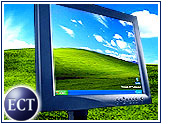
Companies and developers hanging on to older releases of Microsoft software will no longer find downloads or support from the Redmond, Washington-based company as it complies with a nearly three-year-old settlement with Sun Microsystems over the use of Java.
Microsoft said that because of the settlement, the company will phase out software that includes Windows 98, Office 2000, Office XP Developer and SQL Server 7, which will no longer be available via the Microsoft Developer Network (MSDN) beginning December 15th.
Analysts indicated that the well-anticipated action should come as no shock to anyone, but Meta Group senior program director Thomas Murphy told TechNewsWorld that despite knowledge of the move and its limited impact, some companies will be significantly burdened by the phase-out.
“They may have known about it, but people seem to prefer to put off anything painful until the last minute,” Murphy said. “It’s not a surprise for developers, but still there are a good number of organizations that have built applets in Java that they work with and use.”
Out with the Old
In a memo posted to its MSDN newsgroups site, Microsoft program manager Andy Boyd indicated that nearly 25 Microsoft products will be phased out as of next week “due to a settlement agreement reached in January 2001.”
Among the products are all versions of Windows 98 (except for SE), most Office 2000 software, and SQL Server 7 and SQL Server 7 Service Pack 3. The phase-out is the last chapter in what Murphy described as a “constantly evolving story” in which Sun and Microsoft settled, negotiated and renegotiated over the Java Virtual Machine.
Microsoft’s Boyd said some products — including Office XP Professional, Publisher 2002, some versions of Windows NT 4.0 and Small Business Server 2000 — will be updated with Java-compliant versions before a settlement deadline at the end of the year.
Jurassic Jettison
Yankee Group senior analyst Laura DiDio said the phase-out comes according to plan and should surprise no one, adding that customers have maintained legacy software systems as much as possible through the economic downturn.
However, DiDio said that with NT 4.0 approaching its seven-year anniversary, companies do not and should not expect support from Redmond on such a product.
“The message here is that if you continue to go maintaining the legacy, sometimes Jurassic, environments, we will support it minimally — it’s not going to be a priority,” DiDio told TechNewsWorld. “Clearly, Microsoft was going to phase this out — there’s no return on investment for them.”
Developer Dilemma
DiDio minimized impact on developers, indicating they are looking beyond Java to the platforms of the future in J2EE or, for Microsoft developers, .NET.
“Developers go to where the money is,” she said. “It’s a J2EE and .NET world.”
However, Meta Group’s Murphy pointed out that many organizations likely are using hundreds of Java applets that would be extremely expensive to reengineer.
“Any time your environment is perturbed, it’s going to cause some grief and headaches, but you have to come up with a solution,” he said.
Low-End Leverage
Microsoft’s move comes amid reports that Sun is working with retailers such as Wal-Mart to sell its Java Desktop System, released last week, as an alternative to Microsoft’s software for consumers.
DiDio said that more than competition from Sun or anyone else, Microsoft is fighting a stale upgrade trend that has kept customers using older software such as Windows 98 instead of the more recent Windows XP.
“People are just skipping versions,” she said.
The analyst added that with low prices on Microsoft Office alternatives, such as Sun’s StarOffice, there will be pressure on Microsoft in lower-end markets in which price is paramount.
“With StarOffice, they could make some good inroads into companies starting to deploy Linux,” DiDio said.




















































